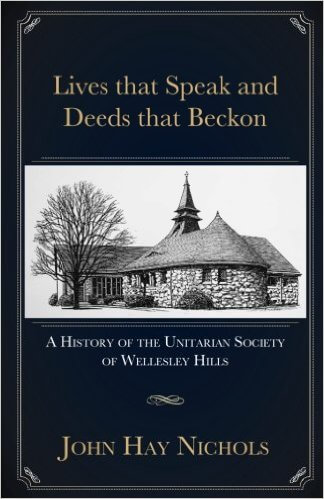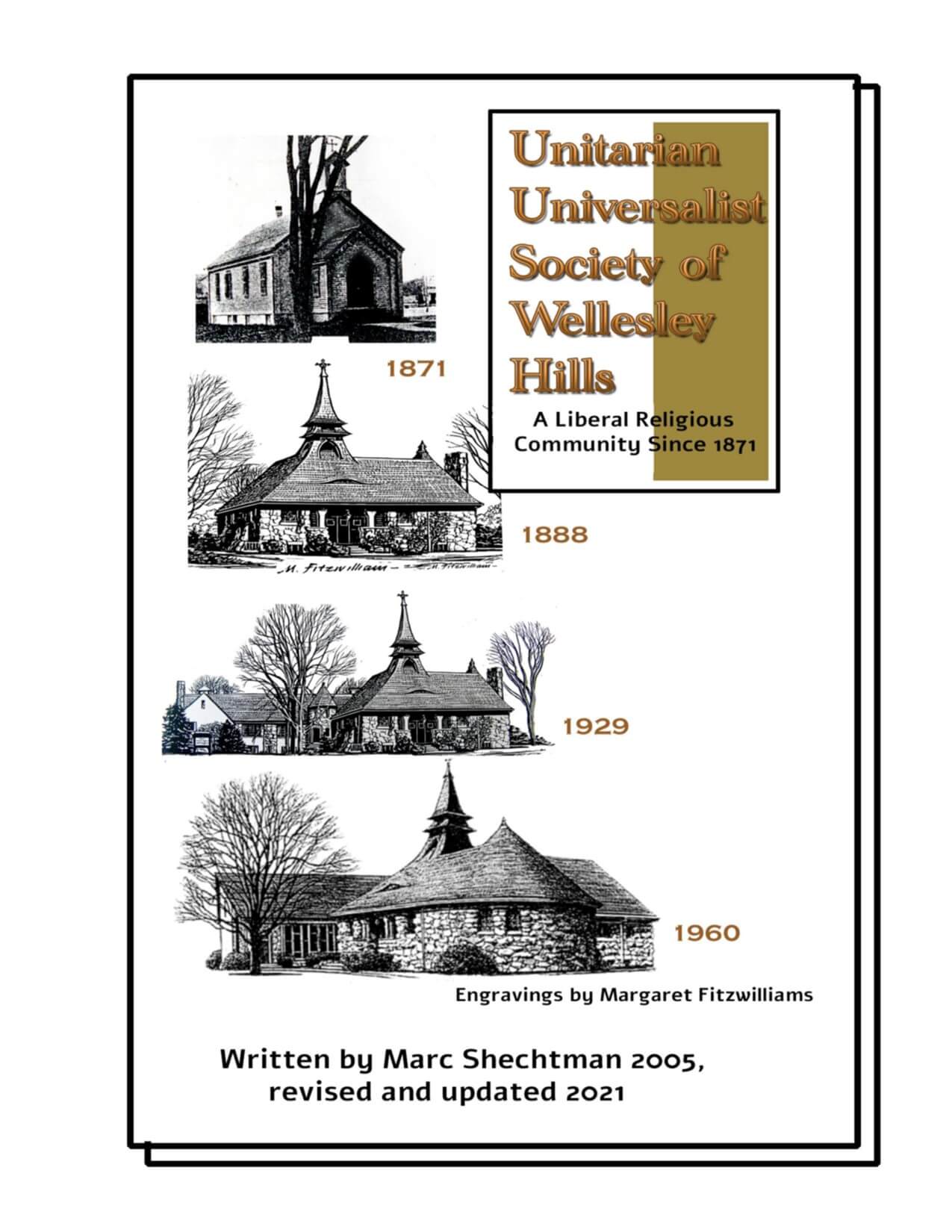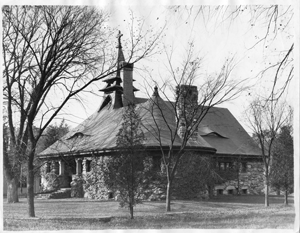Our UU Wellesley Hills Minister Emeritus, Rev. Dr. John Hay Nichols, has written a history of our congregation, “Lives that Speak and Deeds that Beckon.” According to amazon.com, the book allows the reader to “Experience the hopes, dreams, doubts, and courage of a congregation as it grows and evolves with the times.” Anyone interested in an in-depth account of our history should read this book. It is available for purchase HERE or by contacting the church office.

As part of our celebration of 150 years of gathering as a community, a shorter, updated history was created. Long-time UUSWH member Marc Shechtman worked for ten years on this project and completed it in time to be included in recognition of the congregation’s sesquicentennial. While there is some historical overlap with Dr. Nichols’ work, the focus of the booklet is more on the relationship of the congregation to the history of the town of Wellesley and to the evolution of our community and its physical plant. His history is illuminated by some remarkable and unique photographs. A copy of the history booklet can be downloaded here. 
In 1871, scores of people who left the local Congregational Society (now Wellesley Hills Congregational Church) successfully began a more liberal congregation in their community. They first transformed a small meeting hall on the site of our current buildings into their first place of worship. In 1888, they built the stone church which became the first of three structures that today make up our campus. In 1929, another addition, a Parish Hall, was built to accommodate the congregation’s expanding membership. Finally, in 1959, as the old church was being converted into classrooms and meeting spaces, our modern Sanctuary was constructed. In 1996, UU Wellesley Hills held a major capital campaign, called LEGACY, which added our present entrance, greatly increased accessibility to many parts of the complex, and made capital improvements. The pulpit now in our Sanctuary is the same one as in the original church.

Original Chapel
Even in the 21st century, we continue to feel an affinity with our Unitarian founders here in Massachusetts. They, too, were united in respecting the importance of each individual in the life of the church and in believing that the test of any religious community is the service it provides to enrich human lives. Originally a Unitarian congregation, UU Wellesley Hills renamed itself following the 1961 merger of the American Unitarian Association with the Universalist Church of America to form the Unitarian Universalist Association, headquartered in nearby Boston.
Our tradition is deeply rooted in Jewish and Christian traditions and grew out of the Protestant Reformation. Unitarians and Universalists were each considered heretical movements by many Protestant churches, one proclaiming the ultimate unity of God and Creation, the other proclaiming the certainty of the universal salvation of all souls. Our own reluctance to foreclose any new ideas in our midst has much to do with a history in which our forebears were persecuted for openly professing their beliefs and honoring the dictates of their conscience.
We continue to reject any creedal tests within our faith community, understanding that the source of all and ground of our being remains a great mystery to us. The UUA provides an overview of historic Unitarian and Univeralist beliefs, and the UU Studies Network maintains an extensive history of the two prior denominations, with links to many interesting related documents.


